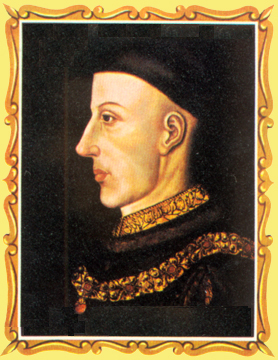

| Reference Materials with Text Links for Items for Sale on Amazon.com: Henry V by Wlliam Shakespeare (Dover Thrift Edition) Henry V by Wlliam Shakespeare (Bantam Classics Edition) Henry V by Wlliam Shakespeare (Folger Shakespeare Library Edition) Henry V (DVD) starring Laurence Olivier Henry V (DVD) starring Kenneth Branagh Henry V Original Soundtrack Recording of 1989 Film (Audio CD) by Patrick Doyle |  |